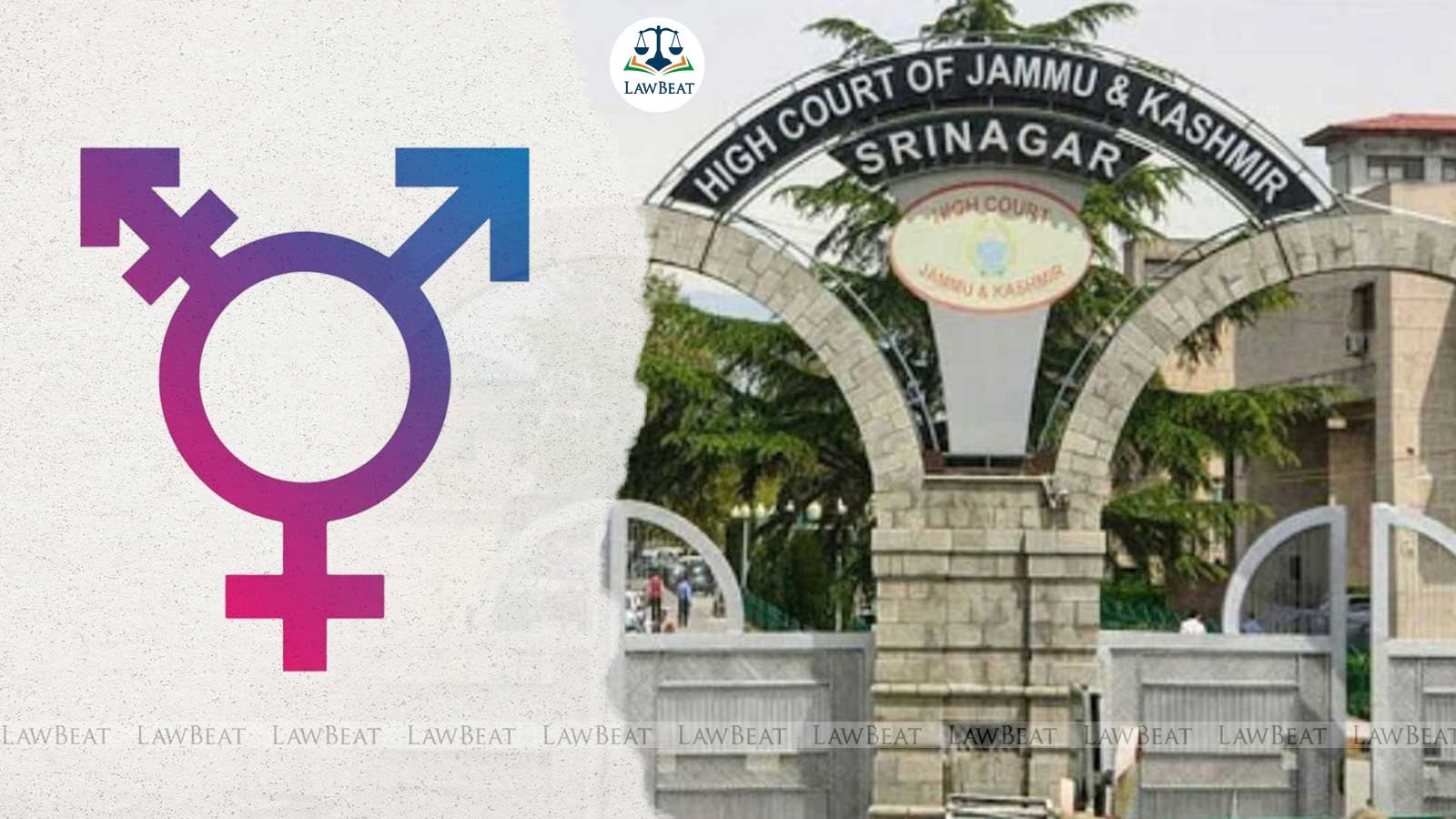‘Whether Any Reservation Has Been Earmarked for Transgenders?’ : J&K and Ladakh HC Seeks Government’s Response

The court was hearing two PILs contending that many prior orders advocating for the rights of transgenders were not implemented by the government
The High Court of Jammu and Kashmir and Ladakh has directed the government to clarify whether reservations have been allocated for the transgender community in the two Union Territories. This directive was issued while a Division bench led by Chief Justice Tashi Rabstan and Justice Puneet Gupta, was hearing two public interest litigations (PILs) filed to advocate for the rights and welfare of transgender individuals, citing the Supreme Court's landmark NALSA judgment [National Legal Services Authority v. Union of India & Ors]. The court also addressed the concern pertaining to the difficulty transgender individuals faced in accessing medical treatment.
The petitioners, represented by Senior Advocate Jayna Kochari and Advocate Iqra Khalid, highlighted the need for special provisions, including reservations, to ensure the social and economic upliftment of transgender individuals in Jammu & Kashmir and Ladakh.
Previously, the High Court had directed the governments of Jammu & Kashmir and Ladakh to accurately ascertain the number of transgender individuals in their regions, emphasising the need for a detailed district-wise count to ensure effective assistance and welfare for the community. The court, in its prior orders, had also outlined multiple measures to support the transgender community, urging authorities to implement welfare schemes, guarantee educational opportunities, and consider employment reservations. These directives were aimed at ensuring the enforcement of their constitutional rights.
However, the petitioners contended that the government has not taken adequate measures to implement welfare schemes, especially in terms of educational and employment opportunities, for the transgender community. The petitioners highlighted the necessity of reservations to close the disparity and guarantee equal opportunities for the transgender community. They also pointed out that many previously issued directives had not been implemented, warranting the need for judicial intervention to enforce compliance.
On behalf of the respondents, Deputy Solicitor General of India (DSGI) T.M. Shamsi, along with Advocate Rehana Qayoom and Government Advocate Fahim Nisar Shah, presented status reports for both Union Territories. The report from the UT of Ladakh, filed on September 13, 2024, confirmed the formation of a committee tasked with identifying the transgender population in Leh and Kargil. It was further submitted that medical care and other facilities were available to transgender individuals at hospitals. However, the respondents acknowledged that “there is no scheme regarding pension or any other monetary assistance or economic facility specially being provided to the transgenders.”
The court, after reviewing the submissions, questioned the government “whether any reservation has been earmarked for this particular community or not.” Further, the court directed the DSGI to “file fresh compliance report disclosing action taken by the Committee being constituted to identify the number of transgenders and also disclose the name of the hospitals where the medical care facilities are being available to the transgender individuals and also file a detailed report with regard to framing of schemes for grant of pensionary benefits,” to the transgender community.
The matter has been listed for the next hearing on December 4, 2024.
Cause Title: AIJAZ AHMAD BUND AND OTHERS v UNION TERRITORY OF J AND K AND ANOTHER (SOCIAL WELFARE) [PIL No.10/2017 c-w WP(C)PIL No.8/2021]
